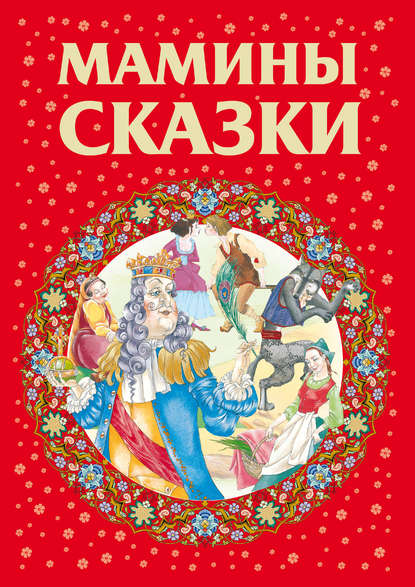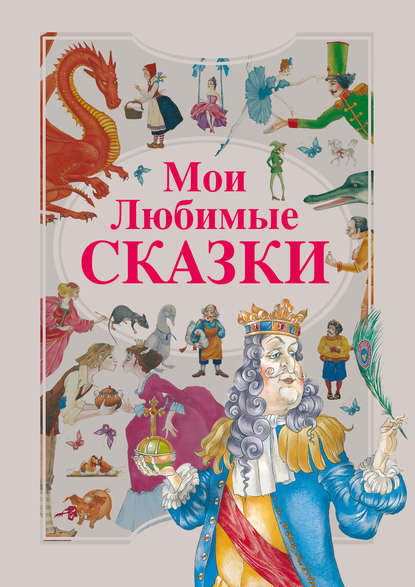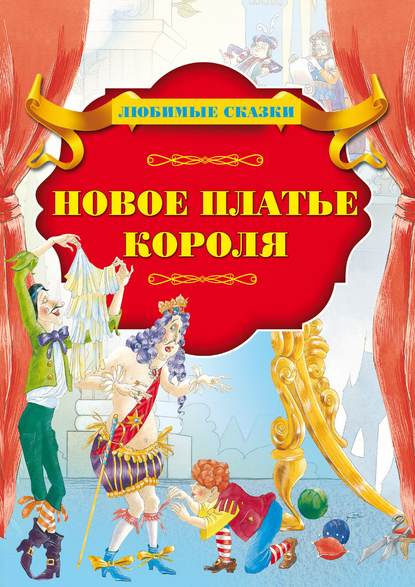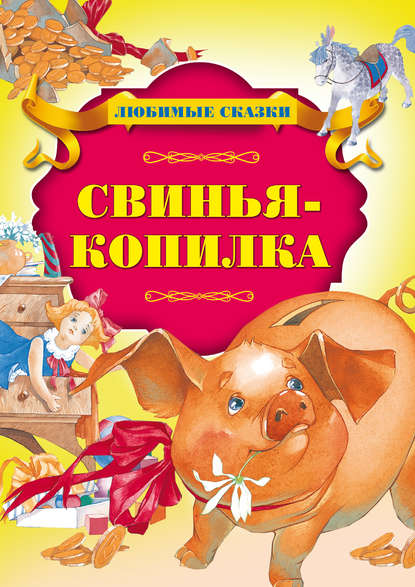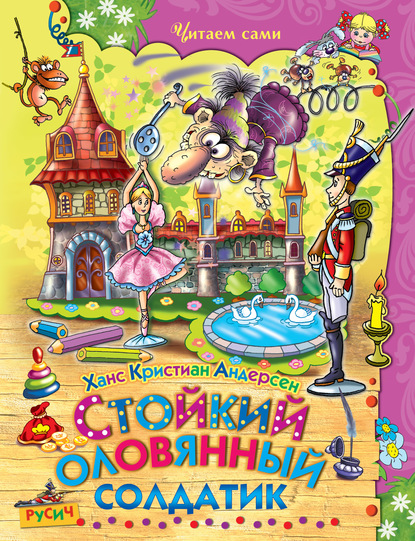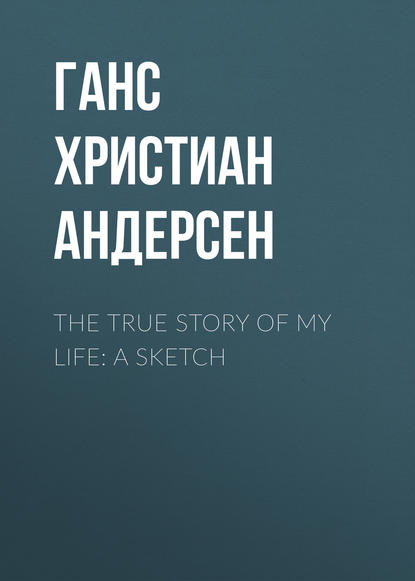 Полная версия
Полная версияПолная версия:
Ганс Христиан Андерсен The True Story of My Life: A Sketch
- + Увеличить шрифт
- - Уменьшить шрифт

H. C. Andersen
The True Story of My Life: A Sketch
THE TRUE STORY OF MY LIFE:
A SKETCHBy Hans Christian AndersenTranslated By Mary HowittTo MESSRS. MUNROE AND CO.
Gentlemen,—I take this opportunity of forwarding to you, the proof sheets of the unpublished Life of Hans Christian Andersen—translated from a copy transmitted to me for that purpose, by the Author. It is as well to state that this is the Author's Edition, he being participant in the proceeds of this work.
I remain, gentlemen,Yours truly,MARY HOWITT.LONDON, June 29, 1847.PREFACE
No literary labor is more delightful to me than translating the beautiful thoughts and fancies of Hans Christian Andersen. My heart is in the work, and I feel as if my spirit were kindred to his; just as our Saxon English seems to me eminently fitted to give the simple, pure, and noble sentiments of the Danish mind.
This True Story of his Life will not be found the least interesting of his writings; indeed, to me it seems one of the most so. It furnishes the key, as it were, to all the rest; and the treasures which it unlocks will be found to be possessed of additional value when viewed through the medium of this introduction. It is gratifying for me to be able to state that the original Author has a personal interest in this English version of his "Life," as I have arranged with my publishers to pay Mr. Andersen a certain sum on the publication of this translation, and the same on all future editions.
M. H.The Elms, Clapton, June 26.
THE TRUE STORY OF MY LIFE
CHAPTER I
My life is a lovely story, happy and full of incident. If, when I was a boy, and went forth into the world poor and friendless, a good fairy had met me and said, "Choose now thy own course through life, and the object for which thou wilt strive, and then, according to the development of thy mind, and as reason requires, I will guide and defend thee to its attainment," my fate could not, even then, have been directed more happily, more prudently, or better. The history of my life will say to the world what it says to me—There is a loving God, who directs all things for the best.
My native land, Denmark, is a poetical land, full of popular traditions, old songs, and an eventful history, which has become bound up with that of Sweden and Norway. The Danish islands are possessed of beautiful beech woods, and corn and clover fields: they resemble gardens on a great scale. Upon one of these green islands, Funen, stands Odense, the place of my birth. Odense is called after the pagan god Odin, who, as tradition states, lived here: this place is the capital of the province, and lies twenty-two Danish miles from Copenhagen.
In the year 1805 there lived here, in a small mean room, a young married couple, who were extremely attached to each other; he was a shoemaker, scarcely twenty-two years old, a man of a richly gifted and truly poetical mind. His wife, a few years older than himself, was ignorant of life and of the world, but possessed a heart full of love. The young man had himself made his shoemaking bench, and the bedstead with which he began housekeeping; this bedstead he had made out of the wooden frame which had borne only a short time before the coffin of the deceased Count Trampe, as he lay in state, and the remnants of the black cloth on the wood work kept the fact still in remembrance.
Instead of a noble corpse, surrounded by crape and wax-lights, here lay, on the second of April, 1805, a living and weeping child,—that was myself, Hans Christian Andersen. During the first day of my existence my father is said to have sate by the bed and read aloud in Holberg, but I cried all the time. "Wilt thou go to sleep, or listen quietly?" it is reported that my father asked in joke; but I still cried on; and even in the church, when I was taken to be baptized, I cried so loudly that the preacher, who was a passionate man, said, "The young one screams like a cat!" which words my mother never forgot. A poor emigrant, Gomar, who stood as godfather, consoled her in the mean time by saying that the louder I cried as a child, all the more beautifully should I sing when I grew older.
Our little room, which was almost filled with the shoemaker's bench, the bed, and my crib, was the abode of my childhood; the walls, however, were covered with pictures, and over the work-bench was a cupboard containing books and songs; the little kitchen was full of shining plates and metal pans, and by means of a ladder it was possible to go out on the roof, where, in the gutters between and the neighbor's house, there stood a great chest filled with soil, my mother's sole garden, and where she grew her vegetables. In my story of the Snow Queen that garden still blooms.
I was the only child, and was extremely spoiled, but I continually heard from my mother how very much happier I was than she had been, and that I was brought up like a nobleman's child. She, as a child, had been driven out by her parents to beg, and once when she was not able to do it, she had sate for a whole day under a bridge and wept. I have drawn her character in two different aspects, in old Dominica, in the Improvisatore, and in the mother of Christian, in Only a Fiddler.
My father gratified me in all my wishes. I possessed his whole heart; he lived for me. On Sundays, he made me perspective glasses, theatres, and pictures which could be changed; he read to me from Holberg's plays and the Arabian Tales; it was only in such moments as these that I can remember to have seen him really cheerful, for he never felt himself happy in his life and as a handicrafts-man. His parents had been country people in good circumstances, but upon whom many misfortunes had fallen; the cattle had died; the farm house had been burned down; and lastly, the husband had lost his reason. On this the wife had removed with him to Odense, and there put her son, whose mind was full of intelligence, apprentice to a shoemaker; it could not be otherwise, although it was his ardent wish to be able to attend the Grammar School, where he might have learned Latin. A few well-to-do citizens had at one time spoken of this, of clubbing together a sufficient sum to pay for his board and education, and thus giving him a start in life; but it never went beyond words. My poor father saw his dearest wish unfulfilled; and he never lost the remembrance of it. I recollect that once, as a child, I saw tears in his eyes, and it was when a youth from the Grammar School came to our house to be measured for a new pair of boots, and showed us his books and told us what he learned.
"That was the path upon which I ought to have gone!" said my father, kissed me passionately, and was silent the whole evening.
He very seldom associated with his equals. He went out into the woods on Sundays, when he took me with him; he did not talk much when he was out, but would sit silently, sunk in deep thought, whilst I ran about and strung strawberries on a straw, or bound garlands. Only twice in the year, and that in the month of May, when the woods were arrayed in their earliest green, did my mother go with us, and then she wore a cotton gown, which she put on only on these occasions, and when she partook of the Lord's Supper, and which, as long as I can remember, was her holiday gown. She always took home with her from the wood a great many fresh beech boughs, which were then planted behind the polished stone. Later in the year sprigs of St. John's wort were stuck into the chinks of the beams, and we considered their growth as omens whether our lives would be long or short. Green branches and pictures ornamented our little room, which my mother always kept neat and clean; she took great pride in always having the bed-linen and the curtains very white.
The mother of my father came daily to our house, were it only for a moment, in order to see her little grandson. I was her joy and her delight. She was a quiet and most amiable old woman, with mild blue eyes and a fine figure, which life had severely tried. From having been the wife of a countryman in easy circumstances she had now fallen into great poverty, and dwelt with her feeble-minded husband in a little house, which was the last, poor remains of their property. I never saw her shed a tear. But it made all the deeper impression upon me when she quietly sighed, and told me about her own mother's mother, how she had been a rich, noble lady in the city of Cassel, and that she had married a "comedy-player," that was as she expressed it, and run away from parents and home, for all of which her posterity had now to do penance. I never can recollect that I heard her mention the family name of her grandmother; but her own maiden name was Nommesen. She was employed to take care of the garden belonging to a lunatic asylum, and every Sunday evening she brought us some flowers, which they gave her permission to take home with her. These flowers adorned my mother's cupboard; but still they were mine, and to me it was allowed to put them in the glass of water. How great was this pleasure! She brought them all to me; she loved me with her whole soul. I knew it, and I understood it.
She burned, twice in the year, the green rubbish of the garden; on such occasions she took me with her to the asylum, and I lay upon the great heaps of green leaves and pea-straw. I had many flowers to play with, and—which was a circumstance upon which I set great importanceù I had here better food to eat than I could expect at home.
All such patients as were harmless were permitted to go freely about the court; they often came to us in the garden, and with curiosity and terror I listened to them and followed them about; nay, I even ventured so far as to go with the attendants to those who were raving mad. A long passage led to their cells. On one occasion, when the attendants were out of the way, I lay down upon the floor, and peeped through the crack of the door into one of these cells. I saw within a lady almost naked, lying on her straw bed; her hair hung down over her shoulders, and she sang with a very beautiful voice. All at once she sprang up, and threw herself against the door where I lay; the little valve through which she received her food burst open; she stared down upon me, and stretched out her long arm towards me. I screamed for terror—I felt the tips of her fingers touching my clothes—I was half dead when the attendant came; and even in later years that sight and that feeling remained within my soul.
Close beside the place where the leaves were burned, the poor old women had their spinning-room. I often went in there, and was very soon a favorite. When with these people, I found myself possessed of an eloquence which filled them with astonishment. I had accidentally heard about the internal mechanism of the human frame, of course without understanding anything about it; but all these mysteries were very captivating to me; and with chalk, therefore, I drew a quantity of flourishes on the door, which were to represent the intestines; and my description of the heart and the lungs made the deepest impression. I passed for a remarkably wise child, that would not live long; and they rewarded my eloquence by telling me tales in return; and thus a world as rich as that of the thousand and one nights was revealed to me. The stories told by these old ladies, and the insane figures which I saw around me in the asylum, operated in the meantime so powerfully upon me, that when it grew dark I scarcely dared to go out of the house. I was therefore permitted, generally at sunset, to lay me down in my parents' bed with its long flowered curtains, because the press-bed in which I slept could not conveniently be put down so early in the evening on account of the room it occupied in our small dwelling; and here, in the paternal bed, lay I in a waking dream, as if the actual world did not concern me. I was very much afraid of my weak-minded grandfather. Only once had he ever spoken to me, and then he had made use of the formal pronoun "you." He employed himself in cutting out of wood strange figures, men with beasts' heads, and beasts with wings; these he packed in a basket and carried them out into the country, where he was everywhere well received by the peasant women, because he gave to them and their children these strange toys. One day, when he was returning to Odense, I heard the boys in the street shouting after him; I hid myself behind a flight of steps in terror, for I knew that I was of his flesh and blood.
Every circumstance around me tended to excite my imagination. Odense itself, in those days in which there was not a single steamboat in existence, and when intercourse with other places was much more rare than now, was a totally different city to what it is in our day; a person might have fancied himself living hundreds of years ago, because so many customs prevailed then which belonged to an earlier age. The guilds walked in procession through the town with their harlequin before them with mace and bells; on Shrove Tuesday the butchers led the fattest ox through the streets adorned with garlands, whilst a boy in a white shirt and with great wings on his shoulders rode upon it; the sailors paraded through the city with music and all their flags flying, and then two of the boldest among them stood and wrestled upon a plank placed between two boats, and the one who was not thrown into the water was the victor.
That, however, which more particularly stamped itself upon my memory, and became refreshed by after often-repeated relations, was, the abode of the Spaniards in Funen in 1808. It is true that at that time I was but three years old; still I nevertheless perfectly remember the brown foreign men who made disturbances in the streets, and the cannon which were fired. I saw the people lying on straw in a half-tumbledown church, which was near the asylum. One day, a Spanish soldier took me in his arms and pressed a silver image, which he wore upon his breast, to my lips. I remember that my mother was angry at it, because, she said, there was something papistical about it; but the image, and the strange man, who danced me about, kissed me and wept, pleased me: certainly he had children at home in Spain. I saw one of his comrades led to execution; he had killed a Frenchman. Many years afterwards this little circumstance occasioned me to write my little poem, "The Soldier," which Chamisso translated into German, and which afterwards was included in the illustrated people's books of soldier-songs. [Footnote: This same little song, sent to me by the author, was translated by me and published in the 19th No. of Howitt's Journal.—M. H.] I very seldom played with other boys; even at school I took little interest in their games, but remained sitting within doors. At home I had playthings enough, which my father made for me. My greatest delight was in making clothes for my dolls, or in stretching out one of my mother's aprons between the wall and two sticks before a currant-bush which I had planted in the yard, and thus to gaze in between the sun-illumined leaves. I was a singularly dreamy child, and so constantly went about with my eyes shut, as at last to give the impression of having weak sight, although the sense of sight was especially cultivated by me.
Sometimes, during the harvest, my mother went into the field to glean. I accompanied her, and we went, like Ruth in the Bible, to glean in the rich fields of Boaz. One day we went to a place, the bailiff of which was well known for being a man of a rude and savage disposition. We saw him coming with a huge whip in his hand, and my mother and all the others ran away. I had wooden shoes on my bare feet, and in my haste I lost these, and then the thorns pricked me so that I could not run, and thus I was left behind and alone. The man came up and lifted his whip to strike me, when I looked him in the face and involuntarily exclaimed,—
"How dare you strike me, when God can see it?"
The strong, stern man looked at me, and at once became mild; he patted me on my cheeks, asked me my name, and gave me money.
When I brought this to my mother and showed it her, she said to the others, "He is a strange child, my Hans Christian; everybody is kind to him: this bad fellow even has given him money."
I grew up pious and superstitious. I had no idea of want or need; to be sure my parents had only sufficient to live from day to day, but I at least had plenty of every thing; an old woman altered my father's clothes for me. Now and then I went with my parents to the theatre, where the first representations which I saw were in German. "Das Donauweibchen" was the favorite piece of the whole city; there, however, I saw, for the first time, Holberg's Village Politicians treated as an opera.
The first impression which a theatre and the crowd assembled there made upon me was, at all events, no sign of any thing poetical slumbering in me; for my first exclamation on seeing so many people, was, "Now, if we only had as many casks of butter as there are people here, then I would eat lots of butter!" The theatre, however, soon became my favorite place, but, as I could only very seldom go there, I acquired the friendship of the man who carried out the playbills, and he gave me one every day. With this I seated myself in a corner and imagined an entire play, according to the name of the piece and the characters in it. That was my first, unconscious poetising.
My father's favorite reading was plays and stories, although he also read works of history and the Scriptures. He pondered in silent thought afterwards upon that which he had read, but my mother did not understand him when he talked with her about them, and therefore he grew more and more silent. One day, he closed the Bible with the words, "Christ was a man like us, but an extraordinary man!" These words horrified my mother, and she burst into tears. In my distress I prayed to God that he would forgive this fearful blasphemy in my father. "There is no other devil than that which we have in our own hearts," I heard my father say one day and I made myself miserable about him and his soul; I was therefore entirely of the opinion of my mother and the neighbours, when my father, one morning, found three scratches on his arm, probably occasioned by a nail, that the devil had been to visit him in the night, in order to prove to him that he really existed. My father's rambles in the wood became more frequent; he had no rest. The events of the war in Germany, which he read in the newspapers with eager curiosity, occupied him completely. Napoleon was his hero: his rise from obscurity was the most beautiful example to him. At that time Denmark was in league with France; nothing was talked of but war; my father entered the service as a soldier, in hope of returning home a lieutenant. My mother wept. The neighbours shrugged their shoulders, and said that it was folly to go out to be shot when there was no occasion for it.
The morning on which the corps were to march I heard my father singing and talking merrily, but his heart was deeply agitated; I observed that by the passionate manner in which he kissed me when he took his leave. I lay sick of the measles and alone in the room, when the drums beat and my mother accompanied my father, weeping, to the city gate. As soon as they were gone my old grandmother came in; she looked at me with her mild eyes and said, it would be a good thing if I died; but that God's will was always the best.
That was the first day of real sorrow which I remember.
The regiment advanced no farther than Holstein, peace was concluded, and the voluntary soldier returned to his work-stool. Everything fell into its old course. I played again with my dolls, acted comedies, and always in German, because I had only seen them in this language; but my German was a sort of gibberish which I made up, and in which there occurred only one real German word, and that was "Besen," a word which I had picked up out of the various dialects which my father brought home from Holstein.
"Thou hast indeed some benefit from my travels," said he in joke. "God knows whether thou wilt get as far; but that must be thy care. Think about it, Hans Christian!" But it was my mother's intention that as long as she had any voice in the matter, I should remain at home, and not lose my health as he had done.
That was the case with him; his health had suffered. One morning he woke in a state of the wildest excitement, and talked only of campaigns and Napoleon. He fancied that he had received orders from him to take the command. My mother immediately sent me, not to the physician, but to a so-called wise woman some miles from Odense. I went to her. She questioned me, measured my arm with a woolen thread, made extraordinary signs, and at last laid a green twig upon my breast. It was, she said, a piece of the same kind of tree upon which the Saviour was crucified.
"Go now," said she, "by the river side towards home. If your father will die this time, then you will meet his ghost."
My anxiety and distress may be imagined,—I, who was so full of superstition, and whose imagination was so easily excited.
"And thou hast not met anything, hast thou?" inquired my mother when I got home. I assured her, with beating heart, that I had not.
My father died the third day after that. His corpse lay on the bed: I therefore slept with my mother. A cricket chirped the whole night through.
"He is dead," said my mother, addressing it; "thou needest not call him. The ice maiden has fetched him."
I understood what she meant. I recollected that, in the winter before, when our window panes were frozen, my father pointed to them and showed us a figure as that of a maiden with outstretched arms. "She is come to fetch me," said he, in jest. And now, when he lay dead on the bed, my mother remembered this, and it occupied my thoughts also.
He was buried in St. Knud's churchyard, by the door on the left hand side coming from the altar. My grandmother planted roses upon his grave. There are now in the selfsame place two strangers' graves, and the grass grows green upon them also.
After my father's death I was entirely left to myself. My mother went out washing. I sate alone at home with my little theatre, made dolls' clothes and read plays. It has been told me that I was always clean and nicely dressed. I had grown tall; my hair was long, bright, and almost yellow, and I always went bare-headed. There dwelt in our neighborhood the widow of a clergyman, Madame Bunkeflod, with the sister of her deceased husband. This lady opened to me her door, and hers was the first house belonging to the educated class into which I was kindly received. The deceased clergyman had written poems, and had gained a reputation in Danish literature. His spinning songs were at that time in the mouths of the people. In my vignettes to the Danish poets I thus sang of him whom my contemporaries had forgotten:—
Spindles rattle, wheels turn round, Spinning-songs depart; Songs which youth sings soon become Music of the heart.Here it was that I heard for the first time the word poet spoken, and that with so much reverence, as proved it to be something sacred. It is true that my father had read Holberg's play to me; but here it was not of these that they spoke, but of verses and poetry. "My brother the poet," said Bunkeflod's sister, and her eyes sparkled as she said it. From her I learned that it was a something glorious, a something fortunate, to be a poet. Here, too, for the first time, I read Shakspeare, in a bad translation, to be sure; but the bold descriptions, the heroic incidents, witches, and ghosts were exactly to my taste. I immediately acted Shakspeare's plays on my little puppet theatre. I saw Hamlet's ghost, and lived upon the heath with Lear. The more persons died in a play, the more interesting I thought it. At this time I wrote my first piece: it was nothing less than a tragedy, wherein, as a matter of course, everybody died. The subject of it I borrowed from an old song about Pyramus and Thisbe; but I had increased the incidents through a hermit and his son, who both loved Thisbe, and who both killed themselves when she died. Many speeches of the hermit were passages from the Bible, taken out of the little catechism, especially from our duty to our neighbors. To the piece I gave the title "Abor and Elvira."



